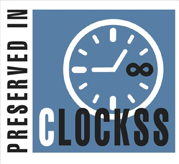Effect of immersive VR therapy on Parkinson’s: systematic review, meta-analysis, and sequential analysis
Francisco A. Luna-Rangel, Department of Neurology, Tecnológico de Monterrey, Escuela de Medicina y Ciencias de la Salud, Nuevo León, Monterrey, Mexico
Brenda González-Bedolla, Tecnológico de Monterrey, Escuela de Medicina y Ciencias de la Salud, Monterrey, Nuevo León, Mexico
Cecilio Armengol-García, Tecnológico de Monterrey, Escuela de Medicina y Ciencias de la Salud, Monterrey, Nuevo León, Mexico
Daniel Martinez-Ramirez, Department of Neurology, Tecnológico de Monterrey, Escuela de Medicina y Ciencias de la Salud, Nuevo León, Monterrey, Mexico
Objective: To compare the efficacy of immersive virtual reality therapy (VRT) versus conventional physical therapy (CPT) in patients with Parkinson’s disease (PD) through a systematic review and meta-analysis. Methods: Systematic searches were conducted in PubMed, Web of Science, and Scopus (PRISMA 2020). We included randomized controlled trials (RCTs) comparing immersive VRT and CPT in PD patients. Primary outcomes included balance, measured with the Berg Balance Scale (BBS); functional mobility, measured with the timed “Up and Go” test (TUGT); motor performance, measured with the Unified PD Rating Scale (UPDRS) part III; and fall risk, measured with the dynamic gait index (DGI). Meta-analyses used random-effects models to compute mean differences (MD) and 95% confidence intervals. Heterogeneity (I2), publication bias, and trial sequential analysis (TSA) were assessed. Results: Four RCTs (n = 102) were analyzed. Immersive VRT showed favorable trends, particularly for mobility (TUGT) and balance (BBS). Balance (BBS): MD = 2.26 (−1.04, 5.55), p = 0.18, I2 = 79%; TSA showed insufficient information size (required information size = 464). TUGT: MD = 0.09 (0.00, 0.17), p = 0.04, I2 = 0%. UPDRS III: MD = −0.19 (−3.28, 2.90), p = 0.91, I2 = 94%. DGI: MD = 1.39 (−0.23, 3.02), p = 0.09, I2 = 0%. Conclusions: Immersive VRT may offer functional benefits for PD, yet current evidence is insufficient to draw firm conclusions. TSA indicates a high risk of type II error. Further high-quality RCTs with standardized protocols are needed.
Keywords: Immersive virtual reality. Parkinson's disease. Neurorehabilitation. Randomized controlled trials. Trial sequential analysis.



